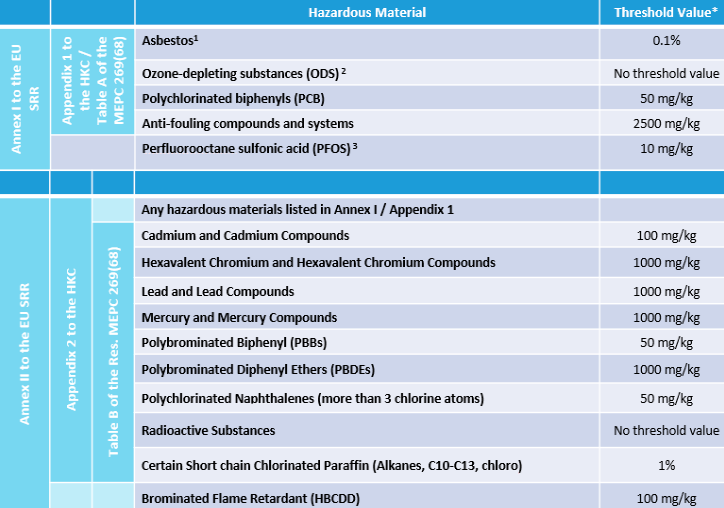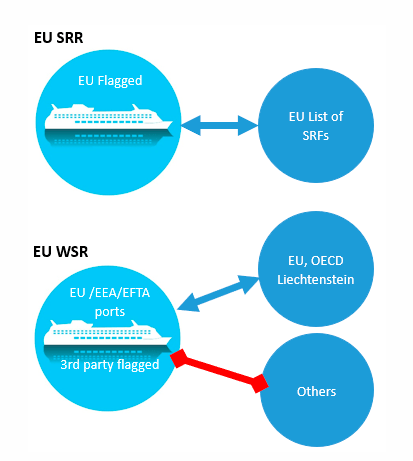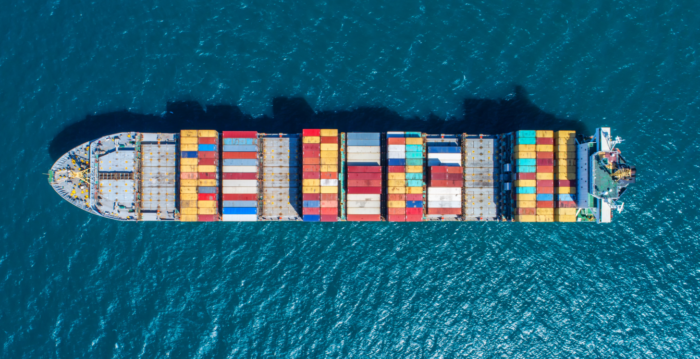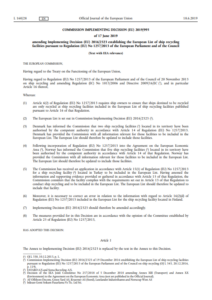The entry into force of the sulphur cap in the beginning of 2020 is – and will be – the highlight of the year. However, at the end of 2020, ships must comply with another very important requirement. Specifically, starting from 31 December 2020, ships above 500 GT and flying the flag of an EU/EEA member state, or third-party flagged vessels calling at European ports, must carry an Inventory Hazardous Materials (IHM) certificate on board. To shed light on this matter, DNV GL hosted a webinar, providing more information about the subject.
EU Ship Recycling Regulation and Inventory Hazardous Materials
On 2013, the European Parliament and the Council of the European Union adopted the Ship Recycling Regulation (EU SRR). The aim of this regulation is to reduce the negative impacts linked to the recycling of ships flying the flag of Member States of the Union. The Regulation establishes requirements that ships and recycling facilities have to fulfil in order to ensure that ship recycling takes place in a sound environment and safe manner.
With the EU SRR entering into force on 31 December 2018, ships and shipowners must keep in mind one crucial feature of the regulation: the IHM (Inventory Hazardous Material).
Namely, new vessels carrying the flag of an EU member state must have on board a certified IHM (Inventory Hazardous Material) starting 31 December 2018. As DNV GL explains, this means that ships with building contracts signed after this date, must have the IHM certificate in the specifications.
[smlsubform prepend=”GET THE SAFETY4SEA IN YOUR INBOX!” showname=false emailtxt=”” emailholder=”Enter your email address” showsubmit=true submittxt=”Submit” jsthanks=false thankyou=”Thank you for subscribing to our mailing list”]
What is more, every EU-flagged vessel planned to be recycled after 31 December 2018 must have a Ready for Recycling Certificate. This means that these vessels should only be sent to recycling facilities that the European List of Ship Recycling Facilities (EU List) includes.
In addition, for vessels in operation and flying the flag of an EU member state, the certified IHM will be required from 31 December 2020.
However, shipowners should be aware of the fact that the EU SRR also affects non-EU-flagged vessels, as ships flying a third-country flag (non-EU flag) calling at a port or anchorage of an EU member state shall have a certified IHM, starting 31 December 2020.
What is the IHM
Complying with IHM requirements, as explained, will be a necessary requirement. But what exactly is the IHM?
Basically, it is a list of hazardous materials that are present on a ship. The IHM quantifies and locates hazardous materials on board, which are known to represent a possible danger to people and the environment.

In order to ensure a safe and environmentally friendly handling of these materials, detailed documentation of those materials in the ship’s structure and equipment, and in stores, is important.
The IHM consists of three parts:
- Part I: Hazardous materials contained in the ship’s structure and equipment;
- Part II: Operationally generated wastes;
- Part III: Stores;
The IHM Part I can be prepared either during the construction of the ship or while the ship is in operation. It is maintained and kept up to date until the end of the ship’s life.
Receiving IHM certification
As DNV GL explains in its webinar, receiving an IHM certification is a three-step process.
- IHM preparation: In this first step, the agreement for the IHM preparation is signed, followed by the on board inspection. After that the IHM and the report are prepared, and are submitted to the ship owner.
- RO approval: During the second step, the agreement for the IHM plan approval is signed, while after that the relevant documents are reviewed. Next, there are clarification comments (if any). Finally, there is the approval and the approval letter submitted to the ship owner.
- IHM initial survey: The final step includes the on board verification of the IHM, which follows a specific check list. The verification can last two hours, after which, if everything is in compliance, the IHM certificate or statement of compliance will be issued by the surveyor with maximum 5 years validity in harmonization with the ship’s main class renewal date.
However, ship owners should keep one very important thing in mind. The whole process could last up to 3 months. So, they must plan the relevant work in a timely manner.
In order to see the progress of IHM certification across the industry, DNV GL conducted a short poll. In this poll, participants were asked in which stage of compliance they are. The results are as follows:
- The majority answered that preparation for certification is in progress, but not finished;
- Tying in second place, many answered either that they have not started yet, or that they have just began;
- Lastly, only an 8% answered that they are IHM certified.
Maintaining the IHM
An IHM maintenance procedure is crucial, and should include the assignment of a qualified designated person. This person’s duties should be contained in the ship owner’s quality management system, and include, among others:
- Works on behalf of the ship owner;
- Maintaining and updating the IHM;
- May be employed ashore or on board;
- In case of conversion, repair or sale of a ship, they maintain or update the IHM Part I, by recording all relevant changes;
- Establishes, implements and supervises a system to ensure updating of IHM Part I.
However, despite the importance of the designated person, the ship owner is the one responsible for the maintenance of IHM Part I, during the entire life time of the ship. Ship owners are also the ones nominating the designated persons that will be responsible for EU SRR compliance.
The importance of the ship owners’ responsibility is even more evident by the fact that PSC inspections are limited to verifying that there is on board either an IHM Certificate / Statement of compliance (SoC), or a Ready for Recycle Certificate (RfR).
Nevertheless, in case a ship does not carry a valid IHM Certificate / SoC, or a RfR, or there are clear grounds for believing that:
- The condition of the vessels does not correspond with the certificate; or
- There is no procedure implemented on board the ship for the maintenance of IHM Part 1.
… a detailed inspection may take place. The inspection will consider relevant IMO guidelines.
Ready for Recycle Certificate
Another crucial certificate is the Ready for Recycle Certificate (RfR). All EU/EEA-flagged ships that were planned to be recycled after 31 December 2018 are required to have an RfRC and must only be sent to recycling facilities included in the European List of Ship Recycling Facilities (European List).
In the same wavelength, the EU Waste Shipment Regulation requires that even though carrying a flag of a third party, a ship must only be sent to EU/EEA/OECD countries for recycling if leaving from one of the EU/EEA ports.

To receive an RfR, the ship owner must initially prepare IHM Parts II and III, as well as find a ship recycling facility listed in the European List. They must then send IHM Parts II and III to the respective ship recycling facility, along with the updated IHM Part I, in order for the ship-specific Ship Recycling Plan (SRP) to be prepared by the ship recycling facility.
When the SRP is ready, the ship owner will have to request a final survey from the ship’s flag or from an RO for the verification of the following:
- Up-to-date IHM Part I, and approved IHM Parts II and III, have been prepared by the ship owner and are on board;
- The approved SRP is on board and has been developed taking into account the hazmats listed in the IHM;
- The agreed ship recycling facility is in the European List.
Updated European List
From 31 December 2018, large commercial seagoing vessels carrying the flag of an EU Member State may be recycled only in safe and sound ship recycling facilities included in the European List of ship recycling facilities.
The European List was first established on 19 December 2016 and last updated on 17 June 2019. It now includes 34 shipyards, including 30 facilities located in 12 Member States of the European Union and in Norway, 3 facilities in Turkey and 1 facility in the United States of America.
To be included in the European List, any ship recycling facility irrespective of its location has to comply with a number of safety and environmental requirements
The EU has informed.
For facilities located in the EU, the national authorities of the Member States indicate to the Commission which facilities located on their territory are compliant.
Ship recycling facilities located in third countries and intending to recycle ships flying a flag of a Member State must submit an application to the Commission for inclusion in the European List.
Below you may see the complete list of the compliant shipyards



































































